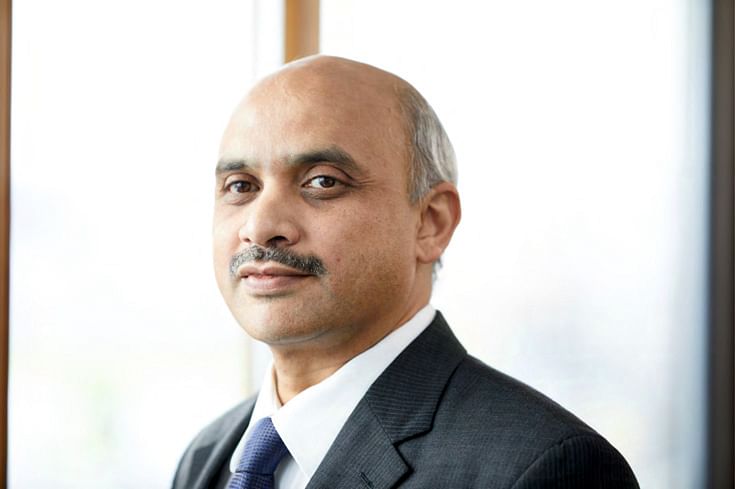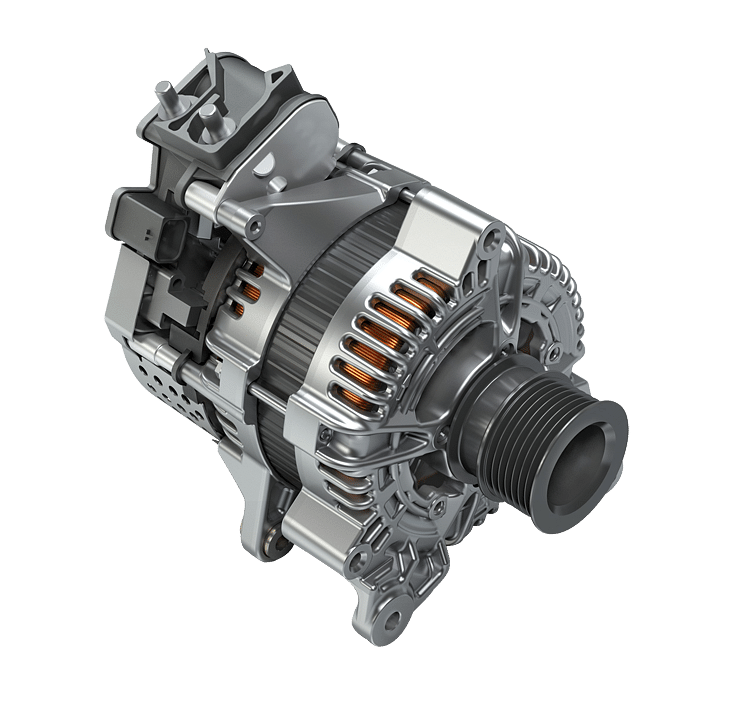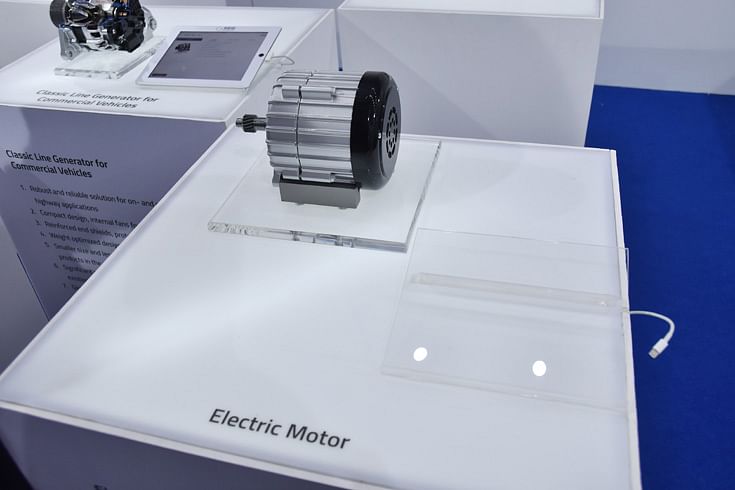SEG Automotive tests new electric motor for e-rickshaw application
The company is testing a 2kW electric motor, to be locally produced and supplied for both cargo and passenger carrying electric rickshaws.
With the FAME II policy's sharp focus on localisation of components in order for EVs across vehicle segments to be able to claim the big-ticket subsidy doled out for the next three fiscals, EV players, start-ups and component manufacturers are increasingly aiming at the 'Make-in-India' route to develop and localise a slew of electronic components of an EV powertrain.
SEG Automotive, the Germany-based global supplier of starter motors and generators which launched its 48V Boost Recuperation Machine (BRM) mild-hybrid system last year, yesterday showcased a brand-new electric motor, co-developed by its main R&D centre in Germany and its Indian arm SEG Automotive India.
The 2kW electric motor christened the EM 1.2-HR (high range), says the company, has been developed keeping in mind the growing demand from e-rickshaws as they see continued deployment in the last-mile connectivity space in many cities across the country.
"We had foreseen the demand even before the government brought major subsidies for e-rickshaws and electric three-wheelers in the FAME II policy, and we had invested and started developing the e-motor early on in 2018," said Anil Kumar MR, managing director, SEG Automotive India, in an interaction with Autocar Professional.
"With the capabilities and collaboration of our Indian and German design teams, we have been able to bring the product from conceptualisation to reality in a record time of one year," Kumar added.

Anil Kumar MR: "We had foreseen the demand even before the government brought major subsidies for e-rickshaws and electric three-wheelers in the FAME II policy, and we had invested and started developing the e-motor early on in 2018."
The e-motor is under field validation phase right now and SEG Automotive India plans SoP by end of the calendar year. The company is finding a slew of e-rickshaw manufacturers, both from the organised and unorganised space, reaching out to it to procure locally produced motors, which is a prerequisite for availing the Rs 50,000 subsidy on registered electric three-wheelers including e-rickshaws within the 5kWH battery pack capacity. The total allocated subsidy for this segment has been set at Rs 2,500 crore for 500,000 such vehicles.
SEG claims a 10 percent improvement in vehicle range with the new e-motor over what e-rickshaw manufacturers are currently using after importing the motors from China.
"While the organised players are coming to us, yes it is a challenge to meet the cost demands from the unorganised e-rickshaw manufacturers. But, what we offer is value and a much lower total cost of ownership with our higher range, efficiency, reliability and also offering warranty on these motors," replied Kumar on asking whether it sees acceptability for its high quality motors in a price sensitive mass mobility segment.
SEG Automotive has also already initiated development on the version 2.0 of the electric motor and it aims to further innovate in terms of range and durability in that product upgrade once it gets launched a couple of years down the line.
"The Indian market is very unique and sometimes abuse becomes normal use, and to ensure durability, our R&D centre keeps on improvising products in order to offer highest quality to customers," Kumar added.
Total e-rickshaw sales in India stood at 384,000 units in 2018, with a projection to cross 1 million units by 2025, according to the company's research.
48V system for e-autos
The company is also seeing demand arising from the electric three-wheeler space as well, which are relatively higher on power and range between 3-7kW.
As a result, while it hasn't developed an all-new system for application in that area, SEG says its 48V Boost Recuperating Machine (BRM) which it introduced in Europe last year, can act as both a mild-hybrid in a gasoline-powered engine, or as a standalone electric driver in low power applications such as passenger or goods carrying electric autos.

48V BRM can act as both a mild-hybrid in a petrol-powered engine, or as a standalone electric driver in low power applications such as passenger or goods carrying electric autos.
"We are supplying the 48V BRM to Mercedes-Benz for implementation in its range of four-cylinder gasoline engines in Germany and we will be adding three more OEM customers this year to be switching to the mild-hybrid system," said Frank Ahlborn, vice-president, Marketing and Product Management, SEG Automotive.
Since the CAFE target of meeting 130gm/km of CO2 in India is manageable with just the start-stop system for most manufacturers, barring some SUV fleet players, SEG hasn't seen much need to localise the component in the country, which is doing well in case of Europe, where manufacturers have to comply with stricter targets of 95gm/km.
"We will continue importing the BRM system for e-auto application for the time being and we will see the market dynamics before taking any decision on investing into localising it here in India," Kumar concluded.
RELATED ARTICLES
Cosmo First diversifies into paint protection film and ceramic coatings
The Aurangabad, Maharashtra-based packaging materials supplier is leveraging its competencies in plastic films and speci...
JSW MG Motor India confident of selling 1,000 M9 electric MPVs in first year
The 5.2-metre-long, seven-seater luxury electric MPV, which will be locally assembled at the Halol plant in Gujarat, wil...
Modern Automotives targets 25% CAGR in forged components by FY2031, diversifies into e-3Ws
The Tier-1 component supplier of forged components such as connecting rods, crankshafts, tie-rods, and fork bridges to l...






 04 May 2019
04 May 2019
 19188 Views
19188 Views











 Autocar Professional Bureau
Autocar Professional Bureau




